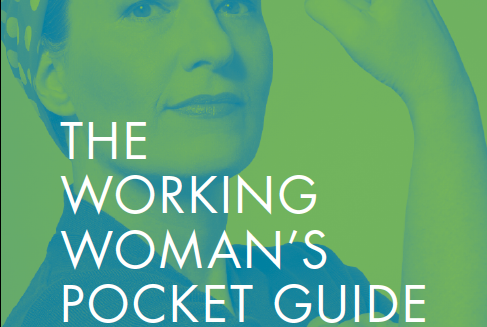The NY Working Woman's Pocket Guide
Pregnancy Accomodations
If you are working while pregnant, or recovering from childbirth, you don’t have to risk your health to stay at your job. New York State law gives you an explicit right to reasonable pregnancy accommodations at work so you can keep earning a paycheck when you need it most.

Am I covered?
If you have a pregnancy- or childbirth-related medical need, including lactation or postpartum depression, and work for, or are applying to work for an employer in New York State, then you are covered. You are also covered by the law if you are an independent contractor.*
*New York State law defines “non-employees” as contractor, subcontractor, vendor, consultant or other person providing services pursuant to a contract in the workplace or who is an employee of such contractor, subcontractor, vendor, consultant or other person providing services pursuant to a contract in the workplace.
What is a reasonable workplace accommodation?
If you have a pregnancy- or childbirth-related medical need, including lactation, your employer has to make changes to your work duties or schedule if it will help you stay healthy on the job, unless it would be very difficult or expensive for them to do so. These changes are called “reasonable accommodations.”
What are some examples of reasonable accommodations?
- Light duty, help with lifting, or a temporary transfer to a less physically demanding position
- Breaks to drink water
- Occasional breaks to rest
- Time off for prenatal or postnatal appointments, recovery from childbirth (or prior to childbirth if you have a medical need for time off), recovery from postpartum depression, etc.
- Modified work schedule
- Break time and space to express milk
How do I ask my employer for a reasonable accommodation?
You can request an accommodation directly from your employer. They are allowed to request a note from your healthcare provider to confirm that you need the accommodation (though you have a right for that information to be kept confidential).
Your employer can only deny the request if it would cause an “undue hardship” for them to grant it or, if you cannot, with accommodation, perform the activities of your job in a reasonable manner.
What if my employer accommodates other workers with limitations but not me?
Consult with an attorney. This could be evidence of pregnancy discrimination.
Do I have additional rights if I work in New York City?
Yes. If you work in New York City and need a pregnancy accommodation, your employer generally cannot request or require you to bring in a doctor’s note justifying the need for minor accommodations, such as minor or temporary changes to work schedules, adjustments to uniform requirements or dress codes, additional or longer food/drink/bathroom/rest breaks, the right to sit or eat at your workstation, moving a workstation to permit movement or stretching of extremities, or to be closer to a bathroom, limits on lifting, minor physical modifications to a workstation, like the addition of a fan or seat, assistance with manual labor, light duty or desk duty assignments, temporary transfers to less difficult or dangerous work, etc.
For accommodations involving working from home or time off, an employer is allowed to request a doctor’s note. But while you are in the process of trying to get the doctor’s note, your employer must provide you with an accommodation that meets your needs, unless it would be extremely difficult or expensive for them to do so.
Even if a note is not required, you can always provide one if you prefer. For guidelines on writing an effective note, visit Pregnant@Work.
Where can I learn more?
Visit “Pregnant in New York? A Guide to Your Workplace Rights During and After Pregnancy” for a guide to walk you through your workplace rights and options during and after pregnancy.
A couple additional notes:
- These laws apply to you regardless of your immigration or citizenship status.
- The information listed in this section does not constitute legal advice. It is always advisable to consult with an attorney about your individual circumstances if you have questions or think your rights as a worker have been violated.
The New York Working Woman’s Pocket Guide
To download the full New York Working Woman’s Pocket Guide as a PDF, click here.




